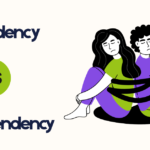The Overthinking Olympics at 2 AM
You’ve had a full day, and now it’s 2 AM. You’re getting ready to sleep, but instead of becoming slumberous, your regretful thoughts come marching back to life: “Remember that thing that embarrassed you in 7th grade?” That now seemingly innocent memory, guess what, triggers every painful and regretfully embarrassment you’ve ever had.
Does that ring a bell to you? It’s relatable to all of us.
These emotions are difficult because they are exhausting; your energy evaporates when you need it most, leading you into loops of regret and self-hatred. It is almost like quicksand because the more you attempt to escape, the harder your situation becomes. This is where strong motivation is needed but making escapes painful. What if I told you do not have to bear such torturous suffering?
You probably would not believe me, but I promise this is not one of those inspirational “Just be guides” to help ease the pain. It is practical, psychology-enabled, stunningly creative, and entertaining… Yet, so effortless. It stops the need for painful emotions from disrupting the peace in your mind.
So, what are we waiting for? Let’s began, shall we?
Why Do We Cling to Emotional Pain? (Such as an Old, Ugly Hoodie We Won’t Let Go Of)
Have you ever noticed how we hold onto our old emotional hurt like it is a VIP membership to the trauma club? We re-experience painful moments, replay exchanges in our mind, and overthink every cringe-worthy moment.
But why?
Your Brain Thinks It’s Helping (But It’s Actually Bothering You)
Your brain is like that overly protective friend who keeps bringing up embarrassing moments because it believes it’s “teaching you a lesson.” It believes that if you keep recalling painful memories, you won’t repeat the same mistakes.
Except… that’s not how it works.
Re-living past pain doesn’t stop future pain—it just makes you unhappy in the moment. It’s like re-watching a sad movie over and over again and hoping for a different ending.
Reality Check! Your past mistakes don’t define you. They are just bad scenes in the movie of your life, not the whole story.
Step 1: The “Movie Theatre” Trick (Detach from Your Feelings Like a Popcorn-Eating Audience Member)
Picture your hurt feelings as a film being shown on a large screen. Rather than being the starring character sinking in emotions, you’re merely a relaxed spectator sitting there watching it happen.
How to Do It:
- Rather than saying: “Ugh, I’m so sad. I hate this feeling.”
- Say this: “Oh, look! Sadness has joined the party. Let’s see how long it lasts.”
This trick is effective because it dissociates you from your feelings. You’re not your sorrow—you’re just feeling it, as if you were observing a rainstorm from your window rather than standing in the rain.
Step 2: The “It Is What It Is” Mindset (A.K.A Stop Wrestling Reality Like a WWE Fighter)
The majority of our misery stems from fighting reality.
- “This shouldn’t have happened to me.”
- “Life is so unfair.”
- “Why me?!”
Reality doesn’t care about what should have happened—it just happened.
How to Stop the Fight:
Swap “Why me?” with “Okay, what’s next?”
Focus on what’s in your control instead of obsessing over what isn’t.
Accept that sometimes life is a chaotic mess, and that’s okay.
Consider it this way: If you spill your ice-cream cone on the floor, you don’t just sit there sobbing about gravity laws.
You just… order another ice-cream.
Step 3: The “Reframe Game” (Converting Pain into a Sitcom Episode)
Have you ever noticed how comedians take their worst life moments and make them into jokes? That’s because humor is an emotional resilience cheat code.
How to Reframe Your Struggles
Instead of: “I got rejected from my dream job. My life is over.”
Try: “Guess the universe is saving me for a better job where I don’t have to survive on instant noodles.”
Instead of: “I embarrassed myself in front of my crush.”
Try: “Well, at least I gave them an interesting story to tell.”
Pain + Time = Comedy. Why not then skip the process and laugh already?
Step 4: The “Time Machine” Trick (Because Your Problems Won’t Matter in 5 Years Anyway)
Right now, whatever is frustrating you can feel like the apocalypse.
But let’s get real
- Think about an issue that felt MASSIVE five years ago.
- Does it bother you now? Probably not.
- Apply the same logic to your situation now.
Most of what feels utterly catastrophic right now will be a footnote in your story.
Future You is already so done—so why begin slow?
Step 5: Don’t Be a Victim—Be the Star Instead
No one likes a movie where the central character just laments and expects something to get better. The best tales are those whose protagonists struggle, adapt, and grow.
Flip the Script
“Why is this happening to me?”
“What is this teaching me?”
“Life is against me.”
“This is my ‘training’ —time to level up.”
Rather than playing yourself as some hapless supporting character, be the hard-as-nails leading character who makes it through things, not the guy waiting for life to get decent.
Step 6: Release the Emotion Before It Turns Into an Emotional Explosion
Bottling things up is like shaking a bottle of soda—it’s going to burst one of these days.
How to Let It Out (Without Freaking People Out)
Write It Down: Journaling isn’t just for teens’ angst—it really does help process emotions.
Talk It Out: Friend, therapist, or even your pet will suffice.
Move Your Body: Dance, exercise, or even scream into a pillow if necessary.
Sorrowful feelings are guests—arrive and depart. But only if you don’t imprison them within.
Step 7: Gratitude Focus (Because Your Brain is a Drama Queen and Needs a Reality Check)
Your brain adores emphasizing what is amiss in your life. What if you forced it to pay attention to what is right?
The Gratitude Hack
- Each day, write down 3 things you’re thankful for.
- Look for something good, even when times are bad.
- Rather than “Life sucks,” say “Okay, but at least I have WiFi and pizza.”
Gratitude is not about pretending problems don’t exist—it’s about seeing that there’s more to life than them.
Final Thoughts: Your Brain Loves to Mess with You—Call Its Bluff
Let’s be real your brain is like that one friend who gets freaked out about everything.
Spill some coffee? “Your whole day is ruined.”
Text without an emoji? “They hate you now.”
Be sad for five minutes? “This is your personality forever.”
The brain loves to elaborate on everything little. One embarrassing incident becomes a disaster movie with you as the star.
The good news?
You’re not obligated to watch this silliness if you don’t desire to. You will hurt. You will embarrass yourself in front of people. You might have an awkward utterance and brain slap yourself silly with it for three years every time you’re showering. You might end up with a heartbreak, a bruised ego, or a trial on your patience.
But suffering?
It is a choice, like a haircut that didn’t turn out well: you can sob over it for half a year or just cover it up with a hat and get on with things.
And the beauty of it all? Half the things your brain freaks about never happen. Ever spent hours dreading something embarrassing happening, only to realize nobody even cared? That’s your brain faking out on you. It’s like a bad psychic predicting doom that never arrives. Your brain loves to replay the awful stuff on repeat, like a DJ stuck on a sad song. But the thing is—nobody else is recalling that moment when you flubbed a word in class or waved at someone who wasn’t waving back. Everybody’s too busy acting out their own inner soap operas.
Instead of allowing your mind to be the director sitting in the chair and making your life a tragedy, rewrite the script. Welcome your embarrassing moments as bloopers, not breaking news.
Laugh at yourself. Take credit for the weirdness of being human.
Next time your mind is trying to persuade you to think that you’re doomed, treat it like an over-the-top friend: nod, smile, and pay it no mind at all.
You’ve survived all the crappy days so far, and I’m sorry to spoil it for your overthinking, but you’re going to survive this one too.
And the next one.
And the next one.
Until one day you find yourself looking around and wondering why you ever let your brain’s bad stories control your life in the first place.
A passionate psychologist on a mission to make psychology insightful, relatable, and engaging! From mental health to human behavior, I break down complex ideas into thought-provoking reads for curious minds.











